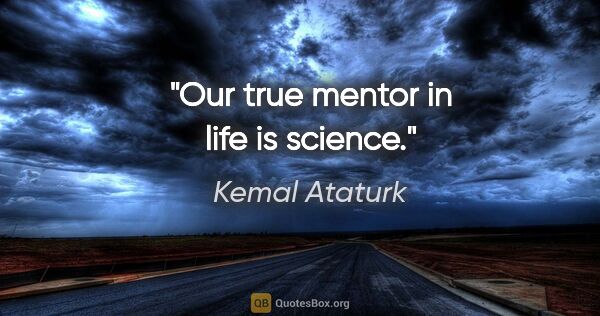Life Science Quotes (page 3)
I was raised very, very strictly with Christian Science. I didn't have a shot or an aspirin or anything until I was 13 years old. We had to go to church, do testimonies every Wednesday night. I think all religion is based on what happens after this life. You live a certain way so that when you die, things can be good. But why can't things be good now? Why can't you understand that you're in heaven now? That's how I live. I believe in God. I think that God is everywhere. Every morning I look...
Ellen DeGeneres
Some years ago I was struck by the large number of falsehoods that I had accepted as true in my childhood, and by the highly doubtful nature of the whole edifice that I had subsequently based on them. I realized that it was necessary, once in the course of my life, to demolish everything completely and start again right from the foundations if I wanted to establish anything at all in the sciences that was stable and likely to last.
Rene Descartes
It is the man of science, eager to have his every opinion regenerated, his every idea rationalized, by drinking at the fountain of fact, and devoting all the energies of his life to the cult of truth, not as he understands it, but as he does not yet understand it, that ought properly to be called a philosopher.
Charles Sanders Peirce
In all spheres of modern life the influence of Stalin reaches wide and deep. From his last simply written but vastly discerning and comprehensive document, back through the years, his contributions to the science of our world society remain invaluable. One reverently speaks of Marx, Engels, Lenin and Stalin—the shapers of humanity’s richest present and future.” – Paul Robeson
Paul Robeson
What happens when an animal or person dies? Something seems to have departed--something like a vital spark that makes the difference between life and death. In the nineteenth century, philosophers believed that there really was such a thing and called it the lan vital, or vital spirit. But when twentieth century science began to unravel the mysteries of how living things work and reproduce, the idea was abandoned and people now accept that there is nothing more to being alive than complex,...
Susan Blackmore
You squeeze the eyedropper, and a drop of pond water drips out onto the microscope stage. You look at the projected image. The drop is full of life - strange beings swimming, crawling, tumbling; high dramas of pursuit and escape, triumph and tragedy. This is a world populated by beings far more exotic than in any science fiction movie...
Carl Sagan
In the history of science, ever since the famous trial of Galileo, it has repeatedly been claimed that scientific truth cannot be reconciled with the religious interpretation of the world. Although I an now convinced that scientific truth is unassailable in its own field, I have never found it possible to dismiss the content of religious thinking as simply part of an outmoded phase in the consciousness of mankind, a part we shall have to give up from now on, Thus in the course of my life I...
Werner Heisenberg
Be aware of this truth that the people on this earth could be joyous, if only they would live rationally and if they would contribute mutually to each others' welfare. This world is not a vale of sorrows if you will recognize discriminatingly what is truly excellent in it; and if you will avail yourself of it for mutual happiness and well-being. Therefore, let us explain as often as possible, and particularly at the departure of life, that we base our faith on firm foundations, on Truth for...
Kurt Vonnegut
There is something which unites magic and applied science (technology) while separating them from the "wisdom" of earlier ages. For the wise men of old, the cardinal problem of human life was how to conform the soul to objective reality, and the solution was wisdom, self-discipline, and virtue. For the modern, the cardinal problem is how to conform reality to the wishes of man, and the solution is a technique.
C. S. Lewis
A totalitarian society which succeeded in perpetuating itself would probably set us a schizophrenic system of thought, in which the laws of common sense held good in everyday life and in certain exact sciences, but could be disregarded by the politician, the historian, and the sociologist. Already there are countless people who would think it scandalous to falsify a scientific text-book, but would see nothing wrong in falsifying an historical fact.
George Orwell

